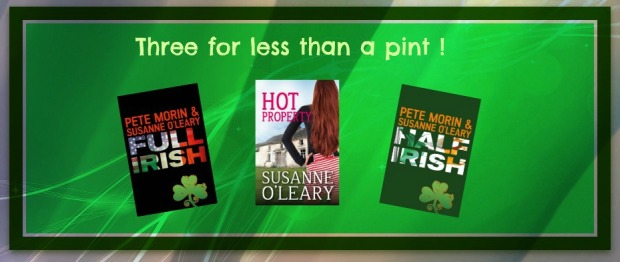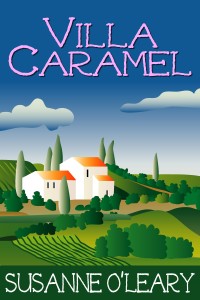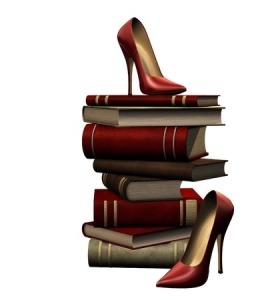As a self published author since 2010, I, like many of my colleagues, have had to struggle with the the general consensus that self publishing is only for those writers whose work isn’t good enough to attract an agent or publisher. It was the so-called ‘stigma’, which I, as a romance author, was used to. To quote Hugh Howey: ‘romance authors eat stigma for breakfast’.
This attitude is slowly disappearing. In fact, readers generally don’t actually notice who published a book they want to read. If the cover and blurb, and the sample chapters are good, they’ll buy and read, and often find a new author they like. This is not fiction, it’s a solid fact. The proof of this particular pudding is now staring publishers in the face- and they don’t like it.
My friend and colleague Dean Crawford just posted a very interesting thread on the forum I run for Indie writers. He writes in the sci fi and thriller genres and is what is know as a ‘hybrid’ author, which means that he is both traditionally (by Simon & Schuster). and self-published author. (I’ve read and loved his new thriller,Stone Cold).
Deans insight into publishing is second to none, and he says it better than anyone. Here is some of what he predicts:
A big traditional publisher (one of the big 5) have recently shut down their sci-fi and fantasy imprint, with many redundancies. And another, nearly as big publisher has likewise done the same with their own s/f & fantasy genre imprint, the market currently 18% down in that genre according to figures within the industry. This is despite ( or perhaps because of ) the same genre being currently wildly popular within the independent community. The effects of the publisher’s shift in income, as huge numbers of sales move to independent authors ( despite the protestations of the Big Five that “it’s not happening” ) is obvious. Hugh and Data Guy’s conclusions from the Author Earnings Report is being affirmed by real-world events now in publishing.
Interesting, don’t you think? What this says to me is that self-published authors in this genre are galloping ahead like thoroughbreds on speed, while the heavier horses are still looking at the fences and wondering if it’s safe to jump.
And more: what publishers have to do but are reluctant to admit:
Predictions for the major publishers now seem to show economies of scale producing further mergers ( and shut downs ) of imprints into the bigger houses, which themselves are reliant now upon major names for a vastly disproportionate volume of their income. That said, nobody believes that the market will disappear entirely – only that it will have to rebuild itself from the ground up as it did once before in the 1980s and again after the loss of the Net Book Agreement. Bottom line – editors in New York and London, in glossy offices, can keep pretending it’s not happening, but it is and it’s not slowing down, it’s speeding up. Indies are doing it cheaper, better and more quickly and as for hybrid authors, it’s getting harder for publishers to make advance deals that live up to potential earnings for authors who have the option of going independent with any given title. It’s not just about the size of the advance anymore: an established independent author can reasonably estimate sales in the long term, and judge that against the 65% they might net off a publisher’s advance. Royalty rates and non-compete clauses in contracts further muddy the traditional route’s waters and represent a mark against any savvy author selling out for a deal.
Still want to wait for that publishing deal?
Or.. to quote Dean:
I’ve been at several major writing conventions recently, and over the last few months been talking to other authors, some of whom sell millions traditionally, and others millions independently. The trend I keep seeing again and again is that even the authors who are happily full-time employed by major publishing houses are considering moving into independent publishing: most have unsold manuscripts on their hard drives that, until now, had no place to go. Furthermore, authors like myself who publish both independently and through publishers are leaning heavily toward the Indie route ( I write one book a year for my agent, and four to five for myself! )
Deans advice (which I’m following to the letter):
In summary to all of this, it might be worth everybody who publishes independently to really knuckle down and get going with their marketing, their writing and their market research, because I think it’s quite likely that over the next two years more and more traditional authors, well versed in how to sell books, experienced in editing and marketing, keen to further their careers and perhaps able to independently recover their backlist and go Indie with it ( as per Konrath et all ) will start doing so in droves. At the most recent international festival I attended, more authors than ever were asking me about independent publishing, all of them currently published by traditional houses. More and more of them were concerned about their future income. At the same time, I met more and more indie authors attending than ever before, all of them happily full-time and actually extremely excited about their futures, few of them with any interest in approaching agents or publishing houses for deals.
But… here is my take: maybe trad published authors do have good back lists (if the manage to wrangle the rights out of the greedy hands of their publishers) BUT Indie (as in self-published) authors have a huge advantage because we are way ahead. We have learned the skills of self-publishing the hard way. We know how to format for the e-book market, whether by hiring a formatter or doing it ourselves. We know where to find good cover artists, we have teams of great beta readers and we know where to find good editors. We also know how to market by promoting our books through the best channels and social media. This all takes time and practice. Trad published authors will have to push themselves far out of their comfort zone and learn how to do it themselves. That takes time and hard work. Good luck to them. In the meantime, we will work even harder to produce good books at a pace the traditional publishing industry never could.
I was once a traditionally published author. When I decided to go out on my own, I was lucky enough to get the rights of my books back so I could put up a small but solid backlist. Now, I’m a proud Indie and earning an income I never thought possible.
The final word from Dean:
Sharpen your pencils, folks, and get to work! The avalanche of new material that’s likely to appear in the near future will possibly change the marketplace forever. It’ll only get harder to stand out but maybe that’s a good thing, because one other thing I noticed was that a lot of traditionally published authors remained tight-lipped when it came to sharing information. The Indies were not, and the sole independent-author panel at the last convention, despite being buried in the graveyard slot on a Sunday morning, was once again one of the busiest of the entire weekend..
So that’s what I’m doing. My pencil is sharpened and I’m ready for the scary but exciting future of publishing.
~~~~~~~~~~~~~~~~~~~~~~~~~~~~~~~~~~~~~~~~~~~~~~~~~~~~~~~
If you want to find out more about dean Crawford here are few links:
Facebook: www.facebook.com/pages/Dean-Crawford-Books/227989043878445
Twitter: twitter.com/DCrawfordBooks
US Author Page: www.amazon.com/Dean-Crawford/e/B004UO651U/ref=ntt_athr_dp_pel_1







